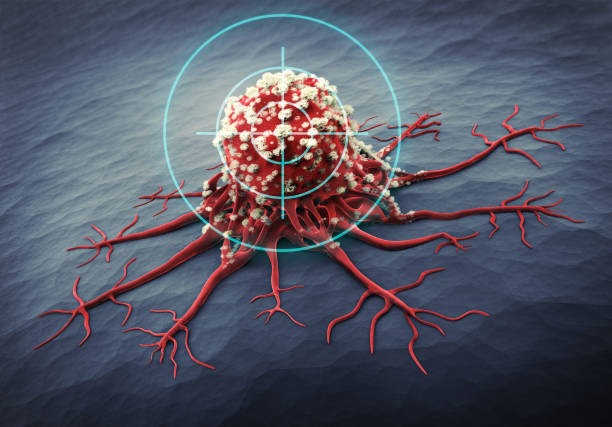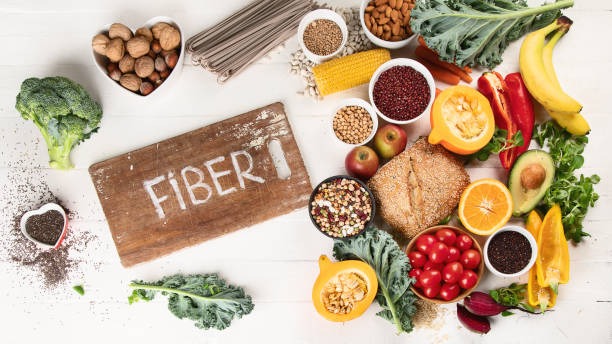Discover the Delicious Side of Plant-Based Eating: Unveiling the Health Benefits!
Jennifer Jane, BSN, RN
8/2/202411 min read


You’re out to dinner with your best friend, studying the menu. Should you get the bacon burger or the black bean mushroom burger? You’re trying to eat healthier, so go for the plant-based option, hoping it doesn’t taste like cardboard. When hesitatingly sinks your teeth into the first bite, the flavors are surprisingly, deliciously deep, umami, gently spicy, and satisfying. You enjoy this meal and don’t miss the greasy burger at all. You might be on to something!
A plant-based diet can transform your health in incredible ways. Whether you’re newly experimenting with going plant-based or you’ve been a dedicated vegan for years, there is always something new to learn about the delicious, nutritious, far-reaching health benefits of a plant-based diet.
Let's journey to uncover the incredible health benefits of plant-based eating!
Plant-based eating is an easy and powerful way to vitalize your health. A plant-based diet's long list of health benefits and tantalizing flavors with delicately blended herbs and spices will help you feel great and want to experiment more!
Plant-based cooking is fun and delicious, and there is a never-ending supply of online recipes and cookbooks.
Why Go Plant-Based?
Benefits of plant-based eating
Plant-based eating isn’t just a trendy diet. It’s a lifestyle choice for people seeking more energy, weight control, a healthier gut, and fewer chronic health problems.
Why are plant-based diets so good for you?
Rich in Nutrients: Plant-based diets are overflowing with vital nutrients like vitamins, antioxidants, and minerals that support robust health.
Cardiovascular Health: Plant-based diets help reduce blood pressure and cholesterol.
Weight Management: Many fresh fruits and vegetables are nutrient-dense and low in calories, helping you maintain a healthy weight.
Prevention of Disease: Plant-based diets reduce your risk of heart disease, diabetes, and cancer.
Improved Digestion: Plant foods provide fiber, promoting regular bowel movements, healthy digestion, and a diverse and well-fed gut microbiome.
Mental Health: Diet can help to control anxiety and depression. The nutrients in plant foods help to restore your emotional balance.
Why people choose plant-based diets
People choose plant-based diets for health, ethical, and environmental reasons. Regardless of why a person decides to go plant-based, the benefits to personal health and the health of our planet are profound and far-reaching.
Environmental and ethical aspects
The production of meat takes an enormous toll on the earth, from the destruction of forest habitats to make room for factory farms to the amount of water needed to raise the animals to the contamination of water and crops from animal waste to the rise in greenhouse gas emissions (1).
Many people choose plant-based diets for ethical reasons, rejecting the treatment and experience of animals raised for food from birth to slaughter.
Nutrient Powerhouse
Nutrients in a plant-based diet
Plant-based diets are nutritional powerhouses, providing all the essential nutrients for robust health while reducing your risk for chronic diseases. Plants have everything from critical vitamins and minerals to healthy fats and fiber.
A variety of essential nutrients found in plant foods
The vital nutrients a healthy body needs are readily found in a variety of plant foods (2):
Protein: Beans, chickpeas, lentils, quinoa, nuts, tempeh, tofu, and whole grains
Calcium: Leafy greens, tofu, almonds, and fortified plant/nut milks
Iron: Spinach, chickpeas, lentils, and fortified cereals. Tip: Eat iron-rich foods with vitamin C-rich foods to help your body absorb iron!
Omega 3 Fatty Acids: Chia seeds, flaxseeds, and walnuts
Vitamins and Minerals: Fruits, vegetables, seeds, and nuts provide vitamins such as C, A, E, and K, along with minerals such as potassium and magnesium


How plant-based diets can meet all nutritional needs
As long as you vary what you eat daily and consume adequate calories from many different plant foods throughout the week, you can easily give your body what it needs. With a well-planned shopping list, you can quickly get enough vitamins, minerals, protein, calcium, healthy fats, iron, and other essential nutrients (3).
Common myths about protein and other nutrients
Some people think you need to eat meat to get the protein you need to build muscle or drink milk to get calcium for healthy bones, but those are misconceptions.
As long as your body gets all the nine amino acid building blocks it needs to make protein, it is perfectly happy getting it from beans or tofu (4). Tip: Quinoa is a complete protein, meaning it has all nine amino acids!
Eating leafy greens like spinach and kale, almonds, and fortified plant/nut milk can provide all the calcium you need for healthy bones, teeth, and muscle and nerve function (5).


Heart Health
A plant-based diet and heart health
Plant-based diets help reduce blood pressure and lower cholesterol levels, significantly lowering the risk of heart disease (6).
How plant-based eating can improve heart health
The fiber, vitamins, minerals, antioxidants, and healthy fats in plant foods support your heart and blood vessels.
The role of fiber, antioxidants, and healthy fats
Fiber: Soluble fiber, found in beans, oats, and flaxseeds, binds to cholesterol and helps carry it out of the body, reducing cholesterol levels (7).
Antioxidants: Vegetables and fruits contain plentiful and powerful antioxidants that protect your heart by reducing oxidative stress and inflammation (8).
Healthy Fats: Avocados, nuts, seeds, and olives contain heart-healthy fats — monounsaturated and polyunsaturated fats. These healthy fats help decrease bad cholesterol levels and increase good cholesterol levels, reducing the risk of cardiovascular disease (9).
Studies or statistics supporting the benefits
The American Heart Association confirms that people who follow plant-based diets have a 52% lower risk of developing cardiovascular disease than people whose diet is high in animal products (10). Nearly eighteen million people a year die from cardiovascular disease, making it the number one cause of death around the world (11).
According to “You are What you Eat: A Twin Experiment,” a diet study performed with twins, with one twin following a meat-based diet and one twin eating a plant-based diet, the twin eating a diet of plant foods lost 3% of body weight, had improved glucose metabolism, and reduced LDL cholesterol by 10-15% in just eight weeks (12).
Weight Management
A plant-based diet for weight loss
According to the CDC, 73.6% of Americans are overweight or obese (13). Being overweight increases the risk of severe, chronic illnesses.
Weight management is another area made more accessible by a plant-based diet due to the high fiber and low calories in plant foods. A plant-based diet and daily exercise will help your energy levels soar, and your clothes fit more comfortably.
How plant-based eating can aid in weight management.
The fiber in plant foods helps you feel full, so you don’t need to snack as often. Plant foods are packed with nutrients but lower in calories, so you get delicious, nutrient-dense, satisfying foods that won’t add to your waistline.
The high fiber content and low-calorie density of plant foods
High Fiber Content: Plant foods high in fiber, like vegetables, fruits, and whole grains, add bulk to your meals and help you feel full longer.
Low-Calorie Density: Most plant foods are low in calories, allowing you to eat generous, more satisfying portions without consuming too many calories.
Success stories
People have shared their success stories online about how a whole-food, plant-based diet has changed their lives.
For example, 80-year-old Al, who was suffering from severe heart disease, homebound, and maxed out on his meds, transformed his life by following a plant-based diet without sugar, oil, or salt and now is finally able to enjoy an active lifestyle (14).
Olaide had been on hypertension meds for years. After she lost her brother to a heart attack, she started taking her health more seriously and embarked on a whole-food, plant-based diet. After several months, she was able to reduce her blood pressure medication and was able to stop taking it entirely after a year of plant-based eating (15).


Lowering Disease Risk
Plant-based diet and disease prevention
Research shows that plant-based diets lower the risk of chronic diseases and conditions such as diabetes, cancer, hypertension, and stroke. Eating a varied diet of whole, nutrient-dense plant foods can preserve your health and help stave off chronic illness.
Research-backed evidence linking plant-based diets to lower risk of chronic diseases
Many studies have proven the effectiveness of plant-based diets in lowering the risk of chronic diseases by reducing insulin insensitivity, carcinogens, blood pressure, cholesterol, and inflammation.
How plant-based eating can reduce the risk of diabetes, cancer, and other illnesses
Diabetes: A study published in Diabetes Care found that diets high in plants lower the risk of type II diabetes, and diets high in meat and animal fat increased the risk (16). The high fiber in plant foods helps to regulate your blood sugar and improve the body’s sensitivity to insulin.
Cancer: The National Cancer Institute has confirmed that red meat and processed meats like bacon, deli meats, and hot dogs increase the risk of colon, prostate, pancreatic, and stomach cancer (17). Diets rich in antioxidant-rich fruits and vegetables lower your risk of cancer by preventing the damage from free radicals associated with cancer development (18).
Hypertension: A study published in Current Hypertension Reports confirms that people following a vegan or vegetarian diet have the lowest incidence of hypertension, and those who eat meat have the highest. Antioxidant and anti-inflammatory activities of polyphenols in plant foods help reduce blood pressure (19).
Stroke: According to a study in Neurology, a healthy plant-based diet reduced the risk of total ischemic stroke but did not affect the risk of hemorrhagic stroke (20).


Improved Digestion
Plant-based diet and digestion
One of the first things you may notice about switching to a plant-based diet is improved digestion. The high fiber promotes regular bowel movements and supports a healthy gut microbiome.
How plant-based foods can promote better digestion
Many plant foods are rich in fiber and prebiotics and help develop diverse and beneficial gut microbes while decreasing harmful microbes and reducing inflammation in the gastrointestinal tract. Fermented vegetables provide living microorganisms to boost the good bacteria in your gut (21).
Fiber content and its role in gut health
Your digestive system needs two kinds of fiber to work efficiently: insoluble and soluble. They both have distinctive jobs.
Eating animal-based diets often doesn’t provide enough of either type of fiber, increasing the risk of constipation, high cholesterol, and less-than-optimal gut health.
Insoluble Fiber: Helps regulate bowel movements and prevent constipation
Soluble Fiber Acts as a prebiotic, feeding healthy gut microbes and supporting a diverse and robust gut microbiome. This improves digestion and overall health, from mood to immunity.
Tips for transitioning to a plant-based diet without digestive issues
It’s important to gradually increase the fiber in your diet to avoid digestive distress such as bloating and gas.
Follow these tips to make the transition to plant-based eating smooth and easy:
Start Slowly: Increase fiber gradually over several weeks to allow your digestive system to minimize discomfort.
Stay Hydrated: Drink 8 cups of water daily to help fiber and stool move through your digestive system.
Supplement with Probiotics: Fermented vegetables like kimchi and sauerkraut, and fermented dairy (if vegetarian and not vegan) such as yogurt and kefir, can help support gut health during the transition to a high fiber, plant-based diet and to help maintain a healthy gut.
Always follow your provider's recommendations if you have a fiber-sensitive digestive system issue.


Mental Health Benefits
A plant-based diet and mental health
Science is discovering a connection between a plant-based diet and mental health (22).
Plant-based diets can improve emotional balance and cognitive functioning by:
Nutrient-rich foods: Plant foods provide nutrients that support brain health and mood regulation, such as antioxidants, folate, magnesium, and omega-3 fatty acids.
Reducing Inflammation: Plant-based diets are anti-inflammatory. Chronic inflammation is linked to issues with mental health. Antioxidants and phytochemicals in plants help reduce inflammation in the brain, helping reduce symptoms of anxiety and depression and improve brain function.
Neurotransmitter Balance: Plant foods help restore the balance of neurotransmitters. Many people with mood disorders have high levels of monoamine oxidase (MAO), an enzyme that breaks down dopamine, serotonin, and norepinephrine, which are neurotransmitters that help regulate mood. Quercetin, a phytochemical in plant foods such as berries, kale, apples, onions, grapes, and green tea, inhibits MAO and acts as a natural antidepressant.
Gut-Brain Connection: Do you know how you can feel your worries and fears in your gut? That’s because your gut and your brain are connected, allowing your brain to affect gastrointestinal activities and your gut to influence your mood, mental health, and brain function (23).
The connection between diet and mental well-being
A healthy diet is crucial for mental and emotional well-being.
Your brain requires fundamental nutrients—vitamins, minerals, antioxidants, and omega-3 fatty acids—for emotional balance and brain function.
The balance in your gut microbiome profoundly affects your gut-brain connection. An imbalance of microbes allows harmful microbes to cause inflammation and permeability of your gut, negatively influencing your emotional regulation and mental state.
How plant-based eating can improve mood and cognitive function
Plant foods are high in antioxidants, which protect your brain and gut from oxidative stress and provide essential nutrients that support mood regulation and brain health.
Gut inflammation and permeability are linked to anxiety, depression, Alzheimer’s disease, and autism spectrum disorders. Plant foods support the healthy gut bacteria that reduce inflammation and support the gut barrier, preventing toxins from entering circulation (23).


Practical Tips for Plant-Based Eating
Tips for plant-based eating
Plant-based eating is enjoyable and straightforward. There are so many tasty fruits and vegetables to try! Start small and try adding new fruits and vegetables to your menu weekly to find what you like.
Practical advice for incorporating more plant-based foods into everyday meals
Change your diet in steps. Start by planning meatless meals a couple of times a week. Try new recipes each week that look interesting and enticing. Experiment with tofu stir fries and tempeh sandwiches; you might like them even better than your old favorites!
Meal planning tips and grocery shopping advice
Spend some time looking up plant-based recipes online and making a weekly grocery list of needed ingredients so you’ll have them on hand and feel ready and organized.
Concentrate on the perimeter of the store where the fresh produce is.
Try to buy seasonal, local, and organic produce when possible.
Stock your pantry with staples: Whole grains, nuts, seeds, canned or dried beans, lentils, and chickpeas.
Avoid boxed and bagged foods and convenience foods as much as possible.
Experiment with different cuisines to keep your new plant-based diet refreshing.
Be patient with yourself! Treat your diet transition as a journey; taking baby steps is okay.
Experimentation and flexibility in dietary choices
Be flexible and open to change. Try out new foods and flavors. Have fun with it! Plant-based cooking, especially vegan cooking, often feels like an experiment, which keeps it interesting and exciting. It opens up a new food world and makes mealtime lively and creative.










Bottom Line
Essential health benefits of plant-based eating
Plant-based eating offers far-reaching health benefits: Improved heart health, weight management, digestion and gut health, reduced risk of chronic disease, brain health support, and emotional well-being.
Explore plant-based options and experience the benefits firsthand
Plant-based eating promotes vigorous health and a sustainable and ethical lifestyle. The benefits are well supported by scientific research. It’s a nutritious and delicious way to help you feel your best and healthiest self. Try it!
© 2025 Salo Content Writing LLC, all rights reserved
Join the Movement for a Healthier Planet! 🌿
Subscribe now and get your FREE Sustainable Living Checklist! Plus, enjoy weekly articles and delicious plant-based recipes straight to your inbox. Let’s make sustainable living simple and inspiring, one email at a time! 💚✨
